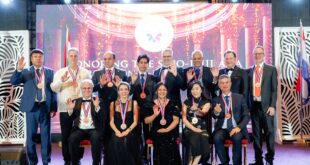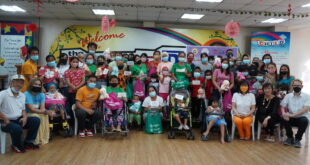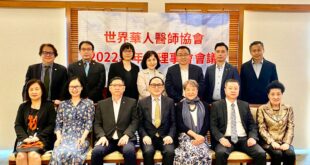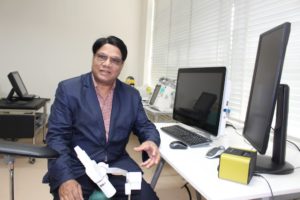
By Christopher Cottrell/ Images: Christopher Cottrell
A doctor and a gentleman, Professor Nivritti Gajana Patil is one of Asia’s finest surgeons and medical education experts. From esteemed English medical wards to the witch-doctor jungles of Papua New Guinea, he has sharpened his surgical knives and intellectual wit with one main medical obsession in mind—how to better train young doctors for better patient care. Indeed, at the University of Papua New Guinea in Port Moresby there is an excellent medical school, considered to be the finest in the South Pacific he greatly admires and that gives him inspiration.
A recipient of the prestigious teaching fellowship medal of The University of Hong Kong, he is currently Honorary Clinical Professor at the Li Ka Shing Faculty of Medicine at Hong Kong University and consulting Professor at the Faculty of Health Sciences at the Macau University of Science and Technology. He also is a recipient of the First College Medal of The College of Surgeons of Hong Kong, and a member of the Order of the British Empire (MBE).
Prof. Patil spoke at length to the Peace Post about the future of international medical education with a Hong Kong and Macau twist. Indeed, he is among the most loved doctors in Hong Kong and Asia, personally training thousands of doctors through the years.
of international medical education with a Hong Kong and Macau twist. Indeed, he is among the most loved doctors in Hong Kong and Asia, personally training thousands of doctors through the years.
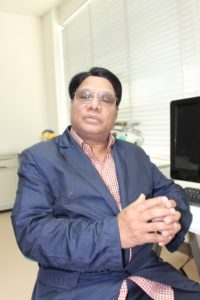
You’ve Practiced Medicine Across the Planet?
Prof. Patil: I was privileged and I was fortunate to work in four continents as a medical educator and surgeon. At the end of the day, though we are living on one planet, we are living in different worlds in terms of medical care, in terms of healthcare.
“But we have to remember one thing: basic principles of healthcare and education are the same in any part of the world, whether you are under the mango tree or in the Mayo Clinic. Facilities, resources, these are the factors.
“So I’ve come to one conclusion now: in today’s world we need to think about the globalization of medical education which will bypass all the systems, all the boundaries. In some way, this is happening now. I am pleased to say that in every part of the world the appendix is still in the right iliac fossa. We still belong to the same genetic makeup around the world. When it comes to medical education in medicine, it used to be purely based on memorization of the facts and apprenticeships. Some of this is good but nowadays we’ve shifted from just traditional medical education to competency based medical education.
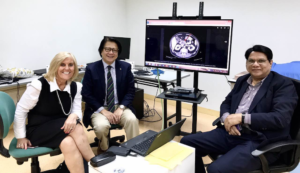
“The graduate from a medical school or even from post-graduate position, they are good enough to pass exams. Most medical students are very bright. Today its not just fitness to pass the exams. Its fitness to practice [medicine]. This is what is happening in today’s world. People are expecting, society is expecting, that a medical graduate should be fit to practice, not just fit to pass the exam. That’s where we are making our efforts nowadays in global medical education. And that can be based on certain skills.”
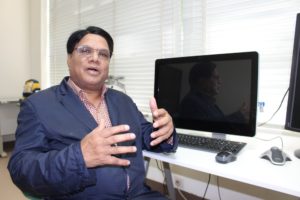
Keeping Competent
Prof. Patil: There are certain skills that you need to acquire in terms of needs, which may be special needs. Once you do that, it is not difficult to create a globalized competency based training.
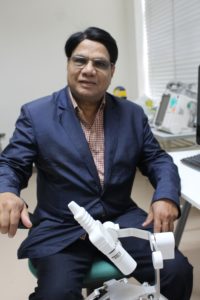
“I am pleased to say our medical school in the Hong Kong University and the one [medical school] proposed in Macau, is based on competency based skills [for doctors].We are proposing a competency based medical school in Macau, and I hope it succeeds.”
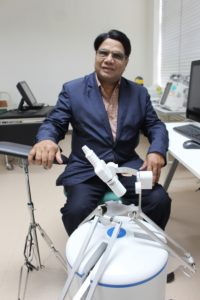
What are the Challenges?
Prof. Patil: The challenge is the same: today’s teachers teach tomorrows doctors yesterdays curriculum. We have to change this culture of doing this, of saying that all is gold and there’s nothing to be done. That has to happen slowly, and it is happening. Medical education, as a specialty, is becoming now very important. If you go to international conferences, such as the Association for Medical Education in Europe, three to four thousand people come to learn about pedagogy, what are the best practices in assessment in skills development are, what are the best practices in evaluation quality, etcetera.”
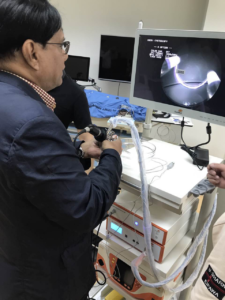
“In the past we thought, everything was done by osmosis. But, you know, we have to realize that that a primary school teacher or college teacher can go to a school to learn how to teach,
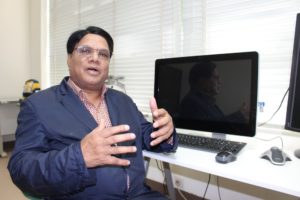
“But in medicine you never have a school to teach how to teach. So a lot of these organizations are now investing how to teach and providing an opportunity for the healthcare profession to learn about the best way to help health sciences education and how you deliver that.”
What about Hong Kong versus Macau Medical Training?
Prof. Patil: A place like Hong Kong has a long history, like a medical school in Hong Kong has one-hundred thirty years. There’s another medical school that’s beyond thirty and forty years old. A place like Macau was under colonial rule for five-hundred years and there wasn’t really a medical school.
“Macau, in some ways, depended mainly on Hong Kong for certain care and depended on the mainland China for education, and the training of doctors. I think that gap has to be filled in by having a medical school in Macau. It needs a vehicle for quality education, quality service, training and all of that.”
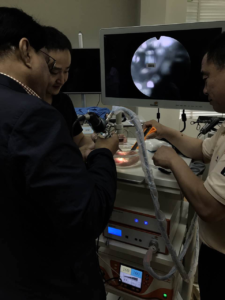
What about Young Doctor Training Today in Hong Kong?
Prof. Patil: Most of the young doctors in Hong Kong are among the brightest. They love medicine. It’s not just about one-way traffic. We have to nurture them to do better in the future. If you just think that they are going to do better in their lives and you feel you’ve ‘just done your job,’ that’s not good enough for medical practice.
“There’s evidence based practice and experience based practice. You have to combine those two. Experience tells you what works in what situations. And the young doctors, the young surgeons tend to feel with the super specialties, if you focus on one thing, you’ll be alright.
“But there’s also an element of professionalism, which is not just based on a technical part. The professionalism is how you deal with the patient, how you empathize with them. Because many of the patients now, people, are living longer. As they live longer, they are also facing the problems of illness. We are operating on patients who are one-hundred one, one-hundred two, and three.”
The Elderly are the Future of the Young
Prof. Patil: So the medical training of the future is going be solving the medical problems of the elderly. There’s no way you can say that somebody is one hundred years old so I’m not going to do anything for them. You can’t do that to somebody with terminal cancer. There’s a famous saying: ‘cure sometimes, care often, and comfort always.’
“Medicine is not about your going to do an operation or do some treatment and hope for the cure. Sometimes we have limitations. There’s the condition of the patient, there’s the condition of the disease, that may effect the outcome. But that doesn’t mean we give up. We still have to give enough comfort and care.
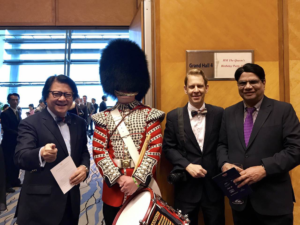
“The future is going to depend on how we’re going to care for the patients, how we’re going to help them lead their lives. That’s really the aspect of training we must do as teachers of doctors, we must nurture.
“Now, younger doctors tend to think about lifestyle issues. There’s nothing wrong for them not to work 100 hours and asking for normal hours so they can live normal lives. They ask for reasonable hours so they can have more sleep or do something else. There’s a truth in that. But that doesn’t stop from them going beyond the call of duty.”
Aging Demographics in Hong Kong and Macau
Prof. Patil: There’s nearly close to one million people Hong Kong and Macau who are older than sixty. These people are fortunate that there is socialized care without any financial burden. Having said that, it is true that they don’t have financial burdens, but you have to provide adequate facilities and care for these people. At a political level, at a social level, people are concerned about that. People are thinking about better solutions for that.
“Healthcare is not a fixed amount of care that you can fix and it works forever. It’s evolving. That’s the challenge. We have to face it, whichever way it comes.”
 Peace Post Asia Healthier News For The World
Peace Post Asia Healthier News For The World
